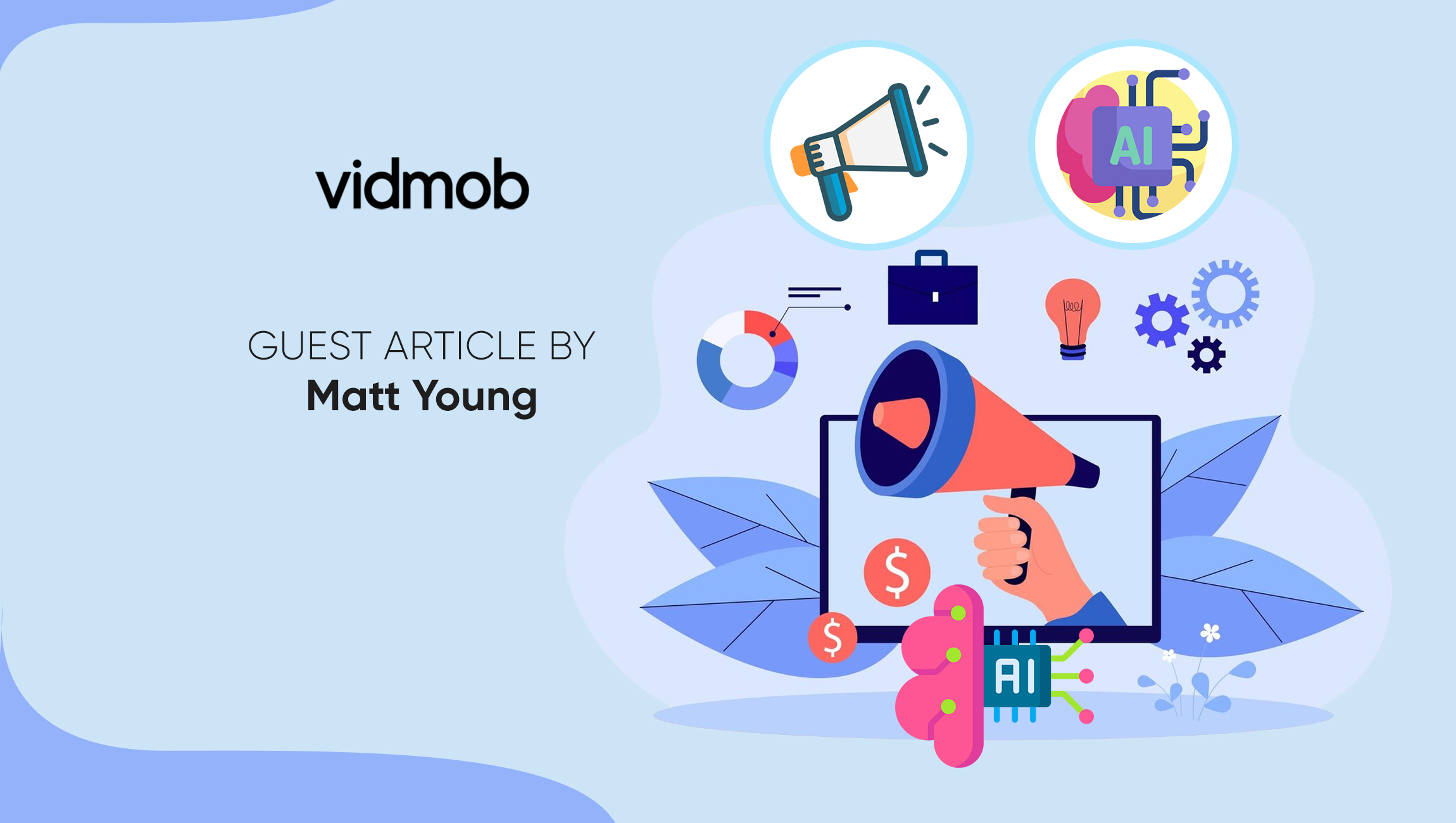The digital marketing landscape has never been more complex. With rising media costs and the increasing commoditization of AI-generated content, brands face the daunting challenge of standing out in an overcrowded market. Improving creative effectiveness has emerged as a critical factor in driving advertising success, but brands are also facing another hurdle: understanding how to measure and effectively optimize their creative strategies. So, despite significant investments in technology and media, many brands continue to struggle to achieve the desired return on investment (ROI).
A recent study, commissioned by Vidmob and conducted by Forrester Consulting, supports these modern marketing challenges. A substantial majority of B2C marketing decision-makers (71%) acknowledge that creative effectiveness is crucial for achieving advertising goals. Yet, despite knowing this, many brands are hampered by outdated creative measurement methods that fall short of what’s needed to succeed. Indeed, 76% of marketing leaders report that ineffective creative weakens their ad performance, and nearly half (45%) struggle with costly, time-intensive, or nonexistent testing approaches. This leaves brands with a limited understanding of what resonates with their audience, undermining their ability to craft impactful campaigns.
While AI tools can help streamline content creation, brands must also adopt AI-driven creative measurement and data technologies to ensure their creative assets are built for maximum performance. This integration is essential for producing differentiated, high-performing content while simultaneously maximizing media impact and positioning businesses for sustained growth in an increasingly competitive market.
Limitations of traditional creative measurement approaches
The gap between the need for creative effectiveness and the ability to measure it is a significant challenge for today’s marketers. Traditional measurement approaches, often reliant on retrospective analysis and suboptimal vendor solutions, fall short of providing the actionable insights needed to adjust creative strategies in realtime.
Many brands are unable to gauge the effectiveness of their creative efforts until after a campaign has concluded, with 32% of marketing leaders reporting this as a major issue. This reliance on post-flight performance data limits their ability to make adjustments on the fly, leaving them stuck with underperforming creative that fails to deliver the desired impact. Even after campaigns end, effective analysis remains elusive—37% of leaders admit they lack the data necessary to inform future creative strategy decisions. This not only hampers current campaigns but also stifles the development of more effective future strategies.
Compounding this problem is that many existing vendor solutions are simply not up to the task. These tools often lack the sophistication required to measure creative performance and optimize creative strategy effectively, leaving brands struggling to understand what works and why. A third of marketing leaders report that these limitations directly impact their ability to measure creative effectiveness, highlighting a critical gap in the market.
AI-Driven Creative Measurement Solutions: A New Paradigm
In the face of these challenges, AI-driven creative solutions represent a new paradigm for the industry. By leveraging AI, brands can now overcome the limitations of traditional approaches, unlocking new levels of creative production and effectiveness.
These tools offer the ability to conduct pre-testing and real-time analysis of creative concepts, enabling marketers to predict and enhance the impact of their ads before they are launched; ensuring they are fit for purpose when going to market. This proactive approach is already gaining traction, with 70% of marketing leaders expressing support for AI-driven creative pre-testing. By using AI to analyze creative elements and predict performance outcomes, marketers can reduce guesswork and inefficiencies, ensuring that their campaigns are built on a solid foundation of data-driven insights.
Another powerful application of AI in creative effectiveness is the use of creative quality scoring. AI algorithms can assess and score creative elements against platform-specific best practices, ensuring that ads meet the necessary criteria before they go live. This approach is critical for maximizing media effectiveness, with 69% of respondents planning to adopt it. Additionally, AI can help ensure compliance with brand and platform guidelines, with 72% of marketing leaders planning to use it for compliance checks. This not only enhances the quality of creative content but also minimizes the risk of running non-compliant ads that could harm a brand’s reputation.
Marketing Technology News: MarTech Interview with Heather Macaulay, President @ MadTech
Implementing AI: Best Practices for Success
While the potential of AI-based creative production solutions is clear, successful implementation requires careful planning and strategic execution. To fully harness the power of AI, brands must adopt best practices that ensure long-term success.
Establishing a Center of Excellence (CoE) is a crucial step for organizations looking to integrate AI-driven creative tools effectively. A CoE provides a structured environment for training teams, aligning internal and external stakeholders, and building AI proficiency. According to recent data, 58% of marketing leaders believe that a CoE is important for successful AI adoption. By centralizing creative expertise and resources, a CoE can help brands overcome the challenges of AI integration and drive continuous improvement in creative effectiveness.
The development of first-party creative data is another key component of successful AI implementation. Creative data platforms can turn every decision in ad assets—things like branding, pacing, talent, messaging, product display, and more—into data and pair them with performance metrics. Sourcing creative data provides valuable insights into the specific performance of past and present campaigns, allowing brands to refine their strategies and make more informed decisions. By leveraging creative data, marketers can ensure that every aspect of their campaigns—from concept to execution—is guided by a deep understanding of what works and why. This data-driven approach not only optimizes current efforts but also informs future campaigns, enabling continuous improvement in creative effectiveness and maximizing the impact of media investments across all channels.
Embracing Data for Long-Term Creative Success
As AI technology continues to evolve, its true potential lies in how effectively brands can integrate custom creative data into their workflows to drive meaningful improvements throughout the marketing supply chain. By tapping into detailed consumer behavior data—such as reactions to specific creative elements—marketers can generate more impactful genAI prompts as well as leverage data for creative and media decisions for outcomes.
Blending insights from creative decisions with key performance metrics allows media teams to allocate budgets more strategically, directing ad dollars toward campaigns with the highest potential for success. Integrating unique creative data into frameworks like marketing mix models (MMMs) provides precise assessments of creative elements’ impact on overall campaign performance. Feeding these insights back into AI-powered systems creates a continuous cycle of optimizations, enabling brands to consistently produce differentiated, visually compelling ads that achieve their business objectives.
As the digital marketing landscape grows increasingly complex, the importance of creative effectiveness in driving brand growth and media ROI cannot be overstated. Traditional measurement methods, with their inherent limitations, are no longer sufficient in a world where real-time optimization and data-driven decision-making are critical. AI-driven creative solutions offer a transformative approach, empowering brands to unlock the full potential of their creative assets.
For marketing leaders, the message is clear: embracing AI-driven tools and strategies is essential for staying ahead in this competitive environment. By investing in creative data, brands can not only meet current demands but also lay the foundation for sustained growth and long-term success in a rapidly evolving market.
Marketing Technology News: Maximizing Loyalty with MarTech: The Power of Flexible Point Earning











